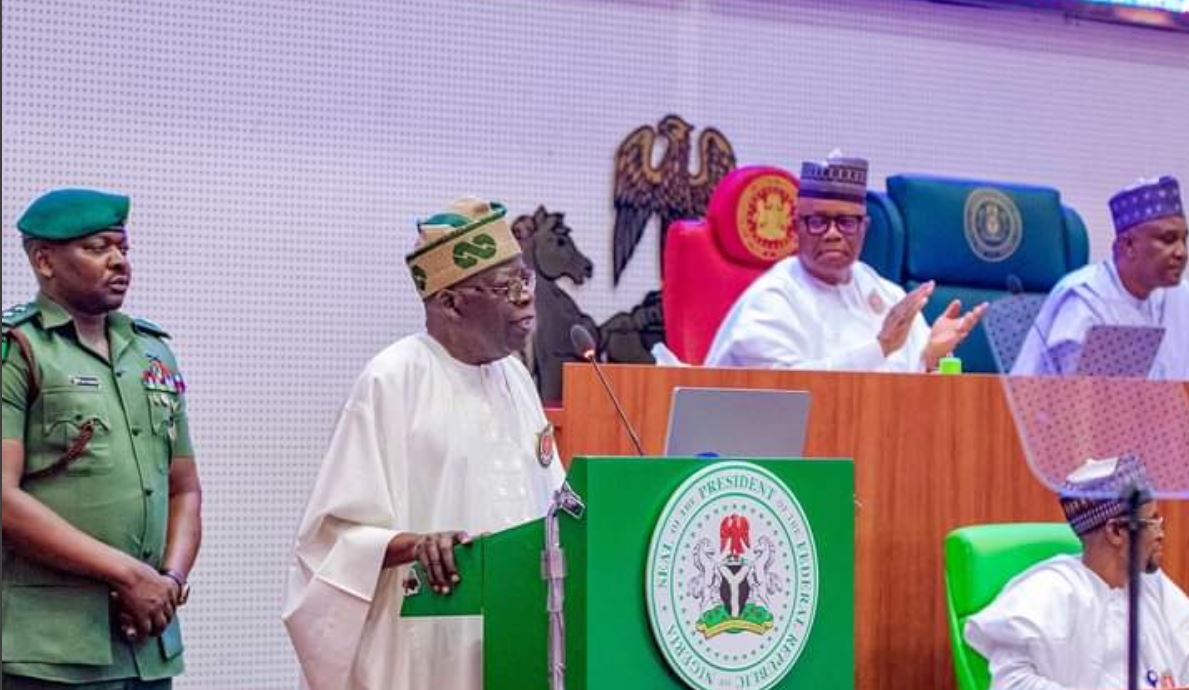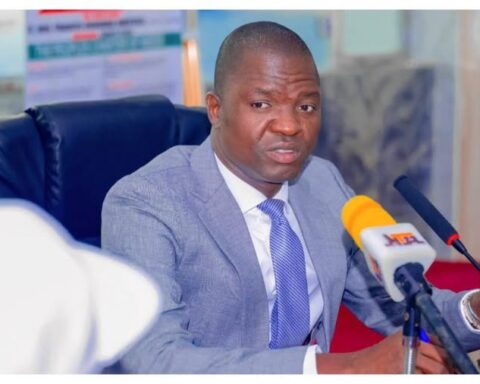The Senate seems poised to uncharactericaly oppose President Bola Tinubu’s seemingly ill-considered decisions, as a joint finance committee session of the Senate and House of Representatives has questioned Tinubu’s insistence on more loans despite the government exceeding its 2024 revenue targets.
The nation’s revenue-generating agencies – the Nigeria Customs Service, Nigerian National Petroleum Company Limited (NNPCL), and Federal Inland Revenue Service (FIRS) – have all reported surpassing their 2024 revenue targets.
Customs, for instance, reportedly generated ₦5.352 trillion, exceeding its ₦5.09 trillion target for 2024.
The NNPCL also reported daily oil production of 1.8 million barrels, nearing the 2.06 million barrels per day projected for 2024 while the FIRS exceeded its 2024 revenue target of ₦19.4 trillion by 15%, collecting ₦5.7 trillion from company income tax alone.
But, despite these impressive revenue performances, the government has gone ahead to secure an additional $2.2 billion loan (₦1.7 trillion) to partially fund development projects in the 2024 budget, bringing the country’s total portfolio to a frightening $45bn to be accompanied by an equally frightening debt service ratio to the GDP .
Tinubu’s moves have caused discomfort among senators who question the need for borrowing when internally generated revenue appears sufficient to meet the country’s needs.
The lawmakers expressed their concerns at a joint finance committee chaired by the Senate’s Committee on Finance, Sen. Sani Musa, and his House of Representatives Committee on Finance counterpart, Hon. James Faleke.
In his remarks, Sen. Adamu Aliero from Kebbi State wondered why the country is still borrowing “when we have so much money.”
“From what has been presented to us, all the revenue agencies either met or exceeded their revenue targets. Over ₦51 trillion has been collected so far, while we budgeted about ₦35 trillion for 2024. What are we doing with the excess revenue?” Senator Aliero queried, adding with a hint of regret that “recently, we approved another loan of $2.2 billion.”
For his part, Faleke, a Tinubu acolyte, asked, “If the IGR target has been surpassed, do we still go ahead and borrow simply because it was budgeted?”
Similarly, Sen. Musa asked, “How will more borrowing help our economy grow?”
Contributing to the discussion from another perspective, Senate Chief Whip, Sen. Mohammed Monguno, expressed dissatisfaction with the “30%” performance of the 2024 budget, pointing out that that did not that did not justify the revenues and loans secured by the government.
“Budget performance is abysmally 30% as of November, and we are already on the verge of receiving the 2025 budget,” he said with frustration.
The Minister of Finance and Coordinating Minister of the Economy, Mr. Wale Edun, defended the government’s decision to borrow, stating that borrowing, when invested for the right purposes, stimulates growth and production.
“Despite the stellar performances of revenue agencies, the revenue is still below the 2024 budget projections because a deficit was already anticipated.
“We still need to improve revenue collection and borrow to invest in the economy to continue stimulating growth and production,” the minister insisted.
Chairman of the Federal Inland Revenue Service (FIRS), Mr. Zacch Adedeji, added that meeting revenue targets did not eliminate the need for borrowing.
“You (the National Assembly) approved in the 2024 budget that we should borrow. The budget includes both borrowing and IGR.
“Borrowing is not a crime. Meeting revenue targets and borrowing are not conflicting,” he stated.
Meanwhile, the Economic and Financial Crimes Commission (EFCC) and the Revenue Mobilisation Allocation and Fiscal Commission (RMAFC) have thrown their weight behind the lawmakers, insisting that Nigeria could fund its budgets without loans.
RMAFC Chairman, Dr. M.B. Shehu, said the NNPCL ceased full payment of petrol subsidies in October but was yet to reconcile remittances to the Federation Account.
“If we become more serious, Nigeria wouldn’t need to borrow a dime at this moment,” he added.
For his take, EFCC Secretary, Mr. Mohammed Haman Joda, announced that the commission successfully recovered ₦197 billion this year.
However, he clarified that most of these recoveries were returned to their rightful owners, including state governments, however, pointing out that if revenue agencies were more diligent in their collections, Nigeria’s reliance on borrowing would be significantly reduced.
According to him, the Nigerian National Petroleum Company Limited (NNPCL) should make firmer moves to address the issue of humongous revenues accruing to the government still unpaid by International Oil Companies (IOCs).
Follow us on all social media platforms @dailyquery for more stories around the globe.



























